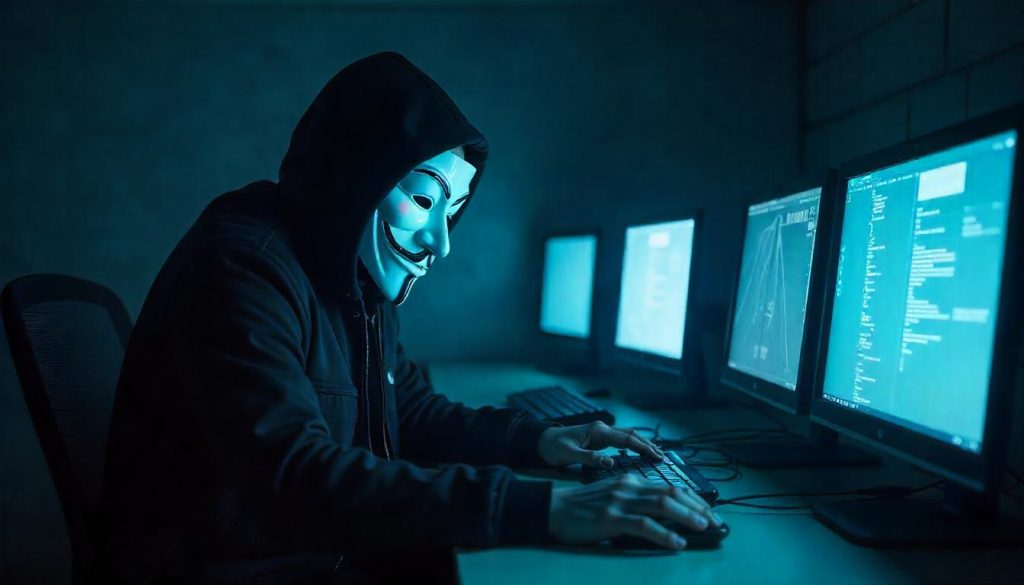In the world of internet activism and whistleblowing, two names often come up together: Anonymous and WikiLeaks. Both have become symbols of digital rebellion, transparency, and challenging powerful institutions. But what exactly connects these two entities? And how did they influence each other in the fight for freedom of information? Let’s dive in to understand the story behind their relationship.

Who is Anonymous?
Anonymous is not a single person or an organization in the traditional sense. It’s a loosely associated group of activists, hackers, and digital pranksters who unite around causes they believe in. The group has no official leaders, no central headquarters, and no formal membership. Instead, anyone who supports their ideals and uses the iconic Guy Fawkes mask can be considered part of Anonymous. Their actions range from online protests and website defacements to exposing corruption and fighting censorship. Over the years, Anonymous has targeted governments, corporations, and institutions accused of injustice, often through Distributed Denial of Service (DDoS) attacks or leaking sensitive information.
What is WikiLeaks?
WikiLeaks, founded by Julian Assange in 2006, is a platform designed to publish classified, censored, or otherwise restricted documents. The goal of WikiLeaks is to promote transparency by exposing hidden truths and holding governments and corporations accountable. WikiLeaks became globally famous in 2010 when it released thousands of secret U.S. military and diplomatic documents, including the Afghanistan and Iraq war logs, and diplomatic cables. These revelations sparked worldwide debates on government secrecy, privacy, and ethics.
How Did Anonymous and WikiLeaks Cross Paths?
Anonymous and WikiLeaks share a fundamental belief: the right to know. Both advocate for transparency and have challenged powerful institutions by exposing secrets that some want to keep hidden. The most notable connection between them emerged during the 2010 Collateral Murder video leak, which WikiLeaks published. The video showed a U.S. military helicopter attacking civilians in Baghdad, including journalists. The shocking footage captured global attention and became a rallying point for internet activists worldwide. Anonymous publicly supported WikiLeaks during this time, particularly after major payment processors like PayPal, Visa, and MasterCard blocked donations to WikiLeaks under government pressure. Anonymous launched Operation Payback, a series of coordinated cyber-attacks aimed at these financial institutions and other entities perceived to be censoring WikiLeaks.
Operation Payback: A Shared Battle
Operation Payback was perhaps the strongest demonstration of solidarity between Anonymous and WikiLeaks. Anonymous members targeted companies that cut off financial services to WikiLeaks, seeing it as an attack on free speech.
The DDoS attacks temporarily disabled websites of Visa, MasterCard, PayPal, and others. The operation brought worldwide media attention and raised important questions about the role of corporations in internet censorship. Through these actions, Anonymous essentially defended WikiLeaks, reinforcing their common values of transparency and resistance against censorship.
Beyond Operation Payback: Ideological Alignment
The connection between Anonymous and WikiLeaks goes deeper than one operation. Both entities emphasize:
-
Transparency: They believe governments and corporations should be accountable to the public.
-
Privacy and Security: They champion digital privacy rights and oppose mass surveillance.
-
Decentralization: WikiLeaks operates as a platform open to whistleblowers, while Anonymous functions without centralized leadership, making both hard to control or shut down.
-
Activism for Social Justice: They often target injustice, corruption, and abuses of power.
Their alignment in these principles has led to frequent collaborations and mutual support in various campaigns over the years.
Differences Between Anonymous and WikiLeaks
Despite their close ties, it’s important to recognize that Anonymous and WikiLeaks are very different in structure and operation.
-
WikiLeaks is a whistleblowing platform, primarily focused on receiving, verifying, and publishing confidential documents.
-
Anonymous is a decentralized group of individuals who use hacking, protests, and digital activism as tools for political or social causes.
While WikiLeaks deals with exposing information, Anonymous often uses direct action like cyber-attacks or online protests.
The Impact of Their Collaboration
Together, Anonymous and WikiLeaks have shaped modern digital activism. Their partnership has:
-
Encouraged whistleblowers worldwide to share critical information.
-
Highlighted the power of the internet as a tool for activism.
-
Sparked debates on freedom of information, government transparency, and internet censorship.
-
Forced governments and corporations to reconsider policies around data privacy and information control.
Their collaboration symbolizes the digital age’s new frontiers in activism, where borders are virtual, and actions can happen with a few keystrokes.
Controversies and Criticisms
Both Anonymous and WikiLeaks have faced criticism and controversy. WikiLeaks has been accused of endangering lives by publishing sensitive information without adequate redaction. Julian Assange’s legal battles and political asylum controversies have polarized opinions worldwide. Anonymous, due to its anonymous nature, has sometimes been linked to illegal activities, cybercrime, or inconsistent actions by different members. Without central control, the group’s actions can vary widely and sometimes contradict. Despite these challenges, both continue to influence the landscape of internet activism.
What’s the Future of the Relationship?
While the peak of their collaboration was around 2010–2011, Anonymous and WikiLeaks still support similar causes. Anonymous occasionally defends WikiLeaks or other whistleblowers and promotes campaigns about internet freedom. With rising global concerns about surveillance, censorship, and digital rights, both are likely to remain relevant symbols of resistance and transparency.
Conclusion: A Powerful Connection Rooted in Shared Values
The connection between Anonymous and WikiLeaks is one of shared ideals and mutual support in the digital fight for transparency, privacy, and freedom of information. Though different in their structure and methods, their collaboration has demonstrated the power of collective action in challenging secrecy and censorship. By understanding their relationship, we see how the internet has transformed activism — empowering individuals and groups to hold powerful institutions accountable like never before.